RBS 2010 Annual Report Download - page 8
Download and view the complete annual report
Please find page 8 of the 2010 RBS annual report below. You can navigate through the pages in the report by either clicking on the pages listed below, or by using the keyword search tool below to find specific information within the annual report.-
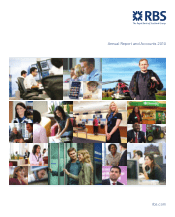 1
1 -
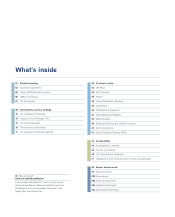 2
2 -
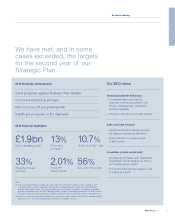 3
3 -
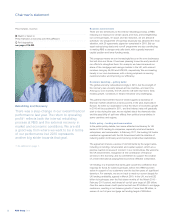 4
4 -
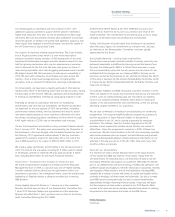 5
5 -
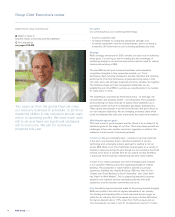 6
6 -
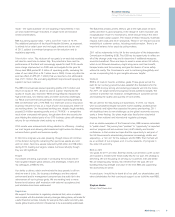 7
7 -
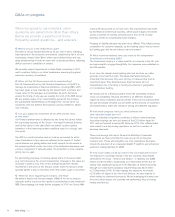 8
8 -
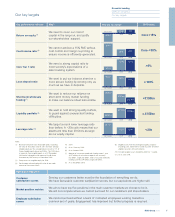 9
9 -
 10
10 -
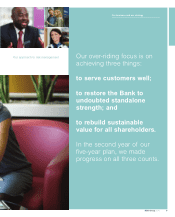 11
11 -
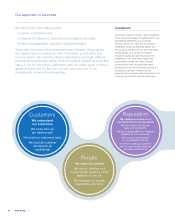 12
12 -
 13
13 -
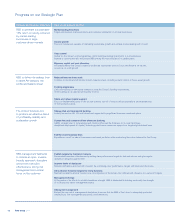 14
14 -
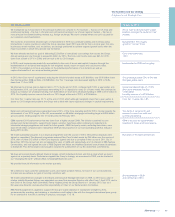 15
15 -
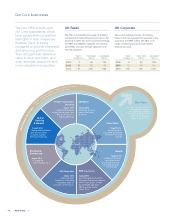 16
16 -
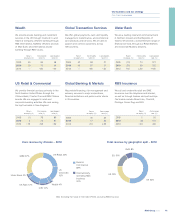 17
17 -
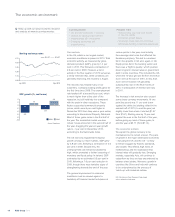 18
18 -
 19
19 -
 20
20 -
 21
21 -
 22
22 -
 23
23 -
 24
24 -
 25
25 -
 26
26 -
 27
27 -
 28
28 -
 29
29 -
 30
30 -
 31
31 -
 32
32 -
 33
33 -
 34
34 -
 35
35 -
 36
36 -
 37
37 -
 38
38 -
 39
39 -
 40
40 -
 41
41 -
 42
42 -
 43
43 -
 44
44 -
 45
45 -
 46
46 -
 47
47 -
 48
48 -
 49
49 -
 50
50 -
 51
51 -
 52
52 -
 53
53 -
 54
54 -
 55
55 -
 56
56 -
 57
57 -
 58
58 -
 59
59 -
 60
60 -
 61
61 -
 62
62 -
 63
63 -
 64
64 -
 65
65 -
 66
66 -
 67
67 -
 68
68 -
 69
69 -
 70
70 -
 71
71 -
 72
72 -
 73
73 -
 74
74 -
 75
75 -
 76
76 -
 77
77 -
 78
78 -
 79
79 -
 80
80 -
 81
81 -
 82
82 -
 83
83 -
 84
84 -
 85
85 -
 86
86 -
 87
87 -
 88
88 -
 89
89 -
 90
90 -
 91
91 -
 92
92 -
 93
93 -
 94
94 -
 95
95 -
 96
96 -
 97
97 -
 98
98 -
 99
99 -
 100
100 -
 101
101 -
 102
102 -
 103
103 -
 104
104 -
 105
105 -
 106
106 -
 107
107 -
 108
108 -
 109
109 -
 110
110 -
 111
111 -
 112
112 -
 113
113 -
 114
114 -
 115
115 -
 116
116 -
 117
117 -
 118
118 -
 119
119 -
 120
120 -
 121
121 -
 122
122 -
 123
123 -
 124
124 -
 125
125 -
 126
126 -
 127
127 -
 128
128 -
 129
129 -
 130
130 -
 131
131 -
 132
132 -
 133
133 -
 134
134 -
 135
135 -
 136
136 -
 137
137 -
 138
138 -
 139
139 -
 140
140 -
 141
141 -
 142
142 -
 143
143 -
 144
144 -
 145
145 -
 146
146 -
 147
147 -
 148
148 -
 149
149 -
 150
150 -
 151
151 -
 152
152 -
 153
153 -
 154
154 -
 155
155 -
 156
156 -
 157
157 -
 158
158 -
 159
159 -
 160
160 -
 161
161 -
 162
162 -
 163
163 -
 164
164 -
 165
165 -
 166
166 -
 167
167 -
 168
168 -
 169
169 -
 170
170 -
 171
171 -
 172
172 -
 173
173 -
 174
174 -
 175
175 -
 176
176 -
 177
177 -
 178
178 -
 179
179 -
 180
180 -
 181
181 -
 182
182 -
 183
183 -
 184
184 -
 185
185 -
 186
186 -
 187
187 -
 188
188 -
 189
189 -
 190
190 -
 191
191 -
 192
192 -
 193
193 -
 194
194 -
 195
195 -
 196
196 -
 197
197 -
 198
198 -
 199
199 -
 200
200 -
 201
201 -
 202
202 -
 203
203 -
 204
204 -
 205
205 -
 206
206 -
 207
207 -
 208
208 -
 209
209 -
 210
210 -
 211
211 -
 212
212 -
 213
213 -
 214
214 -
 215
215 -
 216
216 -
 217
217 -
 218
218 -
 219
219 -
 220
220 -
 221
221 -
 222
222 -
 223
223 -
 224
224 -
 225
225 -
 226
226 -
 227
227 -
 228
228 -
 229
229 -
 230
230 -
 231
231 -
 232
232 -
 233
233 -
 234
234 -
 235
235 -
 236
236 -
 237
237 -
 238
238 -
 239
239 -
 240
240 -
 241
241 -
 242
242 -
 243
243 -
 244
244 -
 245
245 -
 246
246 -
 247
247 -
 248
248 -
 249
249 -
 250
250 -
 251
251 -
 252
252 -
 253
253 -
 254
254 -
 255
255 -
 256
256 -
 257
257 -
 258
258 -
 259
259 -
 260
260 -
 261
261 -
 262
262 -
 263
263 -
 264
264 -
 265
265 -
 266
266 -
 267
267 -
 268
268 -
 269
269 -
 270
270 -
 271
271 -
 272
272 -
 273
273 -
 274
274 -
 275
275 -
 276
276 -
 277
277 -
 278
278 -
 279
279 -
 280
280 -
 281
281 -
 282
282 -
 283
283 -
 284
284 -
 285
285 -
 286
286 -
 287
287 -
 288
288 -
 289
289 -
 290
290 -
 291
291 -
 292
292 -
 293
293 -
 294
294 -
 295
295 -
 296
296 -
 297
297 -
 298
298 -
 299
299 -
 300
300 -
 301
301 -
 302
302 -
 303
303 -
 304
304 -
 305
305 -
 306
306 -
 307
307 -
 308
308 -
 309
309 -
 310
310 -
 311
311 -
 312
312 -
 313
313 -
 314
314 -
 315
315 -
 316
316 -
 317
317 -
 318
318 -
 319
319 -
 320
320 -
 321
321 -
 322
322 -
 323
323 -
 324
324 -
 325
325 -
 326
326 -
 327
327 -
 328
328 -
 329
329 -
 330
330 -
 331
331 -
 332
332 -
 333
333 -
 334
334 -
 335
335 -
 336
336 -
 337
337 -
 338
338 -
 339
339 -
 340
340 -
 341
341 -
 342
342 -
 343
343 -
 344
344 -
 345
345 -
 346
346 -
 347
347 -
 348
348 -
 349
349 -
 350
350 -
 351
351 -
 352
352 -
 353
353 -
 354
354 -
 355
355 -
 356
356 -
 357
357 -
 358
358 -
 359
359 -
 360
360 -
 361
361 -
 362
362 -
 363
363 -
 364
364 -
 365
365 -
 366
366 -
 367
367 -
 368
368 -
 369
369 -
 370
370 -
 371
371 -
 372
372 -
 373
373 -
 374
374 -
 375
375 -
 376
376 -
 377
377 -
 378
378 -
 379
379 -
 380
380 -
 381
381 -
 382
382 -
 383
383 -
 384
384 -
 385
385 -
 386
386 -
 387
387 -
 388
388 -
 389
389 -
 390
390 -
 391
391 -
 392
392 -
 393
393 -
 394
394 -
 395
395 -
 396
396 -
 397
397 -
 398
398 -
 399
399 -
 400
400 -
 401
401 -
 402
402 -
 403
403 -
 404
404 -
 405
405 -
 406
406 -
 407
407 -
 408
408 -
 409
409 -
 410
410 -
 411
411 -
 412
412 -
 413
413 -
 414
414 -
 415
415 -
 416
416 -
 417
417 -
 418
418 -
 419
419 -
 420
420 -
 421
421 -
 422
422 -
 423
423 -
 424
424 -
 425
425 -
 426
426 -
 427
427 -
 428
428 -
 429
429 -
 430
430 -
 431
431 -
 432
432 -
 433
433 -
 434
434 -
 435
435 -
 436
436 -
 437
437 -
 438
438 -
 439
439 -
 440
440 -
 441
441 -
 442
442 -
 443
443 -
 444
444 -
 445
445
 |
 |

RBS Group 20106
Q&As on progress
When we speak to our investors, some
questions are asked more often than others.
Below we provide a selection of those
frequently asked questions – and answers.
xWhere are you in the impairment cycle?
The level of Group impairments fell by 33 per cent in 2010, reflecting
improvements in the economic environment. Impairments fell in all core
businesses, except Ulster Bank, where asset default levels and loss
rates remained high in both the retail and corporate portfolios, reflecting
difficult economic conditions in Ireland.
We currently expect impairments in Ulster Bank to stabilise in 2011,
and to continue falling in our other businesses, assuming the global
economic recovery is sustained.
xWhen will the UK Government sell its shareholding?
The UK Government set up UK Financial Investments Ltd (UKFI) to
manage its investments in financial institutions, including RBS. UKFI
has been given a clear mandate by the Government, to protect and
create value for the taxpayer as shareholder. As such, decisions
around the timing of any sale are outside the remit of the RBS Group.
We are acutely aware of our responsibility as part of this process.
By successfully implementing our Strategic Plan, we will serve our
customers well and achieve the business success needed to attract
new investors.
xCan you explain the treatment of the APS and fair value
of own debt?
Our financial performance is affected by two items that do not reflect
the day-to-day business of the Group – the Asset Protection Scheme
and the fair value of own debt. Both can exhibit counter-cyclical
behaviour, in that improving market conditions result in a charge, and
vice versa.
The APS is a credit derivative and so must be accounted for at fair
value; fluctuations in this value are reflected in the results. If market
circumstances are getting better and credit spreads for the assets in
the covered portfolio narrow, the value of the protection decreases and
a loss is recognised. If spreads widen, the protection is more valuable,
giving rise to a gain.
For accounting purposes, the Group values some of its issued debt
(e.g. bond issues) at the current market price. Changes in this value are
recorded in profit or loss. Part of this change results from market
movements in the price of the Group’s credit: when the Group’s credit
spreads tighten a loss is recorded, when they widen a gain is recorded.
xWhat has been happening to margins, and why?
We need to rebuild net interest margins (NIMs) if we are to produce
adequate profits to service the capital our shareholders have invested in
RBS. Encouragingly, we made further progress in 2010: the Group NIM
rose by 25 basis points to 2.01 per cent. This improvement was driven
by the Retail & Commercial business, where asset margins recovered
across a number of markets, primarily due to the run-off of older
business written at unsustainably lower margins.
Progress on liability margins has been more difficult. This reflects strong
competition for customer deposits, as the banking sector tries to narrow
its funding gap, and the low interest rate environment.
xWhat recommendations have you made to the Independent
Commission on Banking (ICB)?
The Commission inquiry is a major event for our industry in the UK, and
we have sought to engage thoughtfully. Our response was published on
the ICB website.
In our view, the debate about banking size and structure can often
generate more heat than light. The banks that failed during the
crisis didn’t fail because they were too big, or because they had an
investment bank. They failed because they had some form of
concentration risk: in funding, in lending to property, in geography
or in proprietary trading.
We should aim for a financial system where the probability of future
crises is substantially reduced and there is an effective resolution
regime for those institutions that do still fail. If this can be achieved then
the size and shape of banks can be driven by the choices of customers
and shareholders, within the context of strong and effective regulation.
xHow much progress have you made towards the
cost reduction target you set?
Our cost reduction programme continues to deliver material savings.
Annualised savings are now just ahead of the £2.5 billion target for
2011 and are forecast to exceed £3 billion by 2013. This reflects better
cost control in our day-to-day operations, as well as a number of
business disposals.
These cost savings will help to finance the £6 billion of essential
investments we have committed to make as part of our five-year
recovery plan. These will strengthen our core businesses. Examples
include the provision of an integrated Wealth IT platform and enhanced
electronic trading facilities for GBM.
xHow much exposure do you have to the sovereign debt crisis?
Our exposure to sovereign bonds in the two countries most deeply
embroiled in the crisis – Greece and Ireland – is relatively low (£895
million and £104 million, respectively at 31 December 2010). But we
clearly have significant exposure to the Republic of Ireland economy
through our Ulster Bank subsidiary (total lending was £43.2 billion
at 31 December 2010). To help manage this exposure, we placed
c.£15 billion of assets in our Non-Core Division, the vast majority of
which relates to commercial property. We are managing this down over
time and, where assets are currently non-performing, they are being
heavily provisioned.
